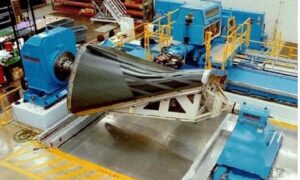In today’s fast-paced digital world, the freelance economy has become a dominant force in the global labor market. More people than ever before are embracing the flexibility and autonomy that freelance work offers. This shift is largely due to the rapid advancement of technologies that have redefined how work is done, where it is done, and who does it. Freelancers, empowered by cutting-edge tools and platforms, are at the forefront of this transformation.
The rise of the freelance economy
Over the last decade, the number of freelancers has grown exponentially. According to recent studies, freelancers now make up a significant portion of the workforce in many countries. In the United States, for example, nearly 36% of the workforce is engaged in freelance work.
This trend is not limited to the US; it is a global phenomenon with freelancers in Europe, Asia, and other regions also experiencing significant growth. This surge is largely driven by technological innovations that have made it easier for individuals to offer their services independently, without the constraints of traditional employment.
Technology as a catalyst
The advent of digital platforms like Upwork, Fiverr, and Freelancer.com has been pivotal in connecting freelancers with clients across the globe. These platforms serve as marketplaces where freelancers can showcase their skills, find job opportunities, and manage projects. The ability to work from anywhere, combined with access to a global client base, has revolutionized the way freelancers operate.
Moreover, communication and collaboration tools like Slack, Zoom, and Trello have made remote work seamless. Freelancers can now collaborate with teams spread across different time zones as easily as if they were in the same office. Project management software, cloud storage, and real-time communication tools have minimized the barriers that once limited remote work.
Specialized tools for freelancers
Beyond general communication and project management tools, there are technologies specifically designed for freelancers. Tools like FreshBooks and QuickBooks simplify accounting and invoicing, while platforms like Hootsuite and Buffer help freelance marketers manage social media campaigns efficiently. Writers and content creators can leverage tools like Grammarly and Hemingway to enhance the quality of their work, ensuring it meets professional standards.
Freelancers also benefit from productivity tools that help them manage their time and stay organized. Applications like Toggl allow freelancers to track their hours accurately, ensuring they are paid fairly for their time. Similarly, Notion and Evernote offer comprehensive note-taking and organizational solutions that help freelancers manage multiple projects simultaneously.
The future of freelance work
As technology continues to evolve, the freelance economy is expected to grow even further. Artificial Intelligence (AI) and machine learning are already beginning to play a role in freelancing. For example, AI-driven platforms can match freelancers with clients more accurately by analyzing their skills, experience, and previous work history. This level of personalization makes it easier for freelancers to find work that suits their expertise, increasing their chances of success.
Blockchain technology is also set to have a significant impact on freelancing. Decentralized platforms powered by blockchain could offer more transparent and secure payment systems, reducing the risk of fraud. Additionally, smart contracts could automate many aspects of freelance work, ensuring that payments are made instantly upon project completion, without the need for intermediaries.
Challenges and opportunities
While technology has undoubtedly enhanced the freelance experience, it has also introduced new challenges. The competition on global platforms is fierce, and freelancers must constantly upskill to stay relevant. Additionally, the gig economy lacks the security and benefits that traditional employment offers, such as health insurance and retirement plans. As the freelance economy matures, it is likely that new solutions will emerge to address these issues. In France, Freelance Dispo allow freelance to find a job.
Technology has been both a catalyst and an enabler for the freelance economy. As new tools and platforms continue to emerge, freelancers will have more opportunities than ever before to thrive in a dynamic and rapidly evolving market. For those who can harness these technologies effectively, the future of freelance work looks incredibly promising.

































